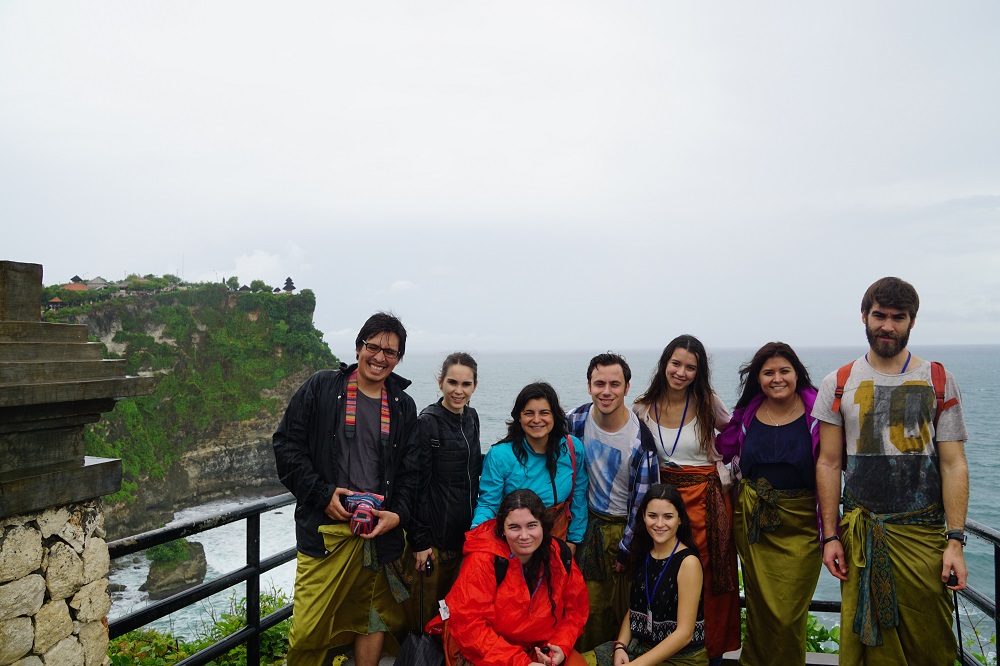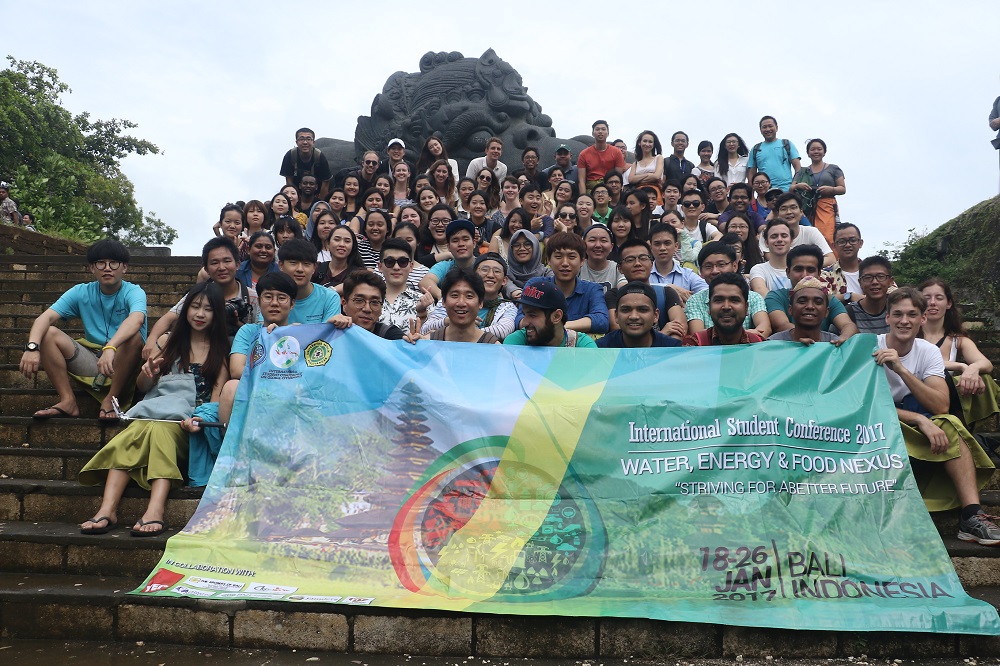30/03/2017
Ten URV students attend the UNPAR International Student Conference in Bali
The topic of the conference was “Water, Energy and Food Nexus: Striving for a better future” and it was organized by Universitas Katolik Parahyangan (UNPAR) in Indonesia

The topic of the conference was “Water, Energy and Food Nexus: Striving for a better future” and it was organized by Universitas Katolik Parahyangan (UNPAR) in Indonesia
From 18 to 26 January, 87 students from 24 countries attended this conference, which was aimed at increasing global awareness regarding the importance of the complex and dynamic interrelationships between water, energy and food, and how we can use and manage our limited resources sustainably. The conference was organized and attended by students.
The International Student Conference (ISC) on Global Citizenship is an annual event that was started by the Office for International Affairs and Cooperation of UNPAR in 2013. Since the third conference in 2014, the conference has been organised in collaboration with the International Network of Universities (INU). In the latest edition 18 participants were students from INU member institutions, including the URV.
The conference consisted of a series of lectures on water, energy and food security and their connection with sustainable development, the threat from climate change and other aspects related to these issues. Topics such as economic, environmental, social, spatial and sustainable development were discussed from various perspectives. Participants were able to attend three workshops in which they could actively discuss issues relating to social campaigning and prepare for their final assignment, which consisted of making a short social campaign film that they presented in a roleplay.
Furthermore, the participants visited Mambal Village in Abiansemal prefecture, which is a success story regarding the communal use of renewable energy (i.e. biogas) and environmentally friendly agriculture based on biofertilizer. The participants also visited Subak Museum to witness the cultural and engineering aspects of subak, a traditional Balinese water management and irrigation system that waters Bali’s rice fields. The museum is home to a wealth of Balinese agriculture equipment and has a miniature subak system to demonstrate how it works.
For the final project, participants were divided into 9 sub-groups each of which had a different topic for its social campaign.

In addition to the academic components, the ISC aimed to promote Indonesian culture and Balinese culture.
The event was not just academic, but also a networking platform for participants, a setting in which they could learn about water, energy and food problems in communities, and a chance to exchange cultural experiences and to increase social empathy and solidarity for a better world in the future.
Views from some of the URV participants:
Clara Esteve Jordà: “It will be a long time before I experience another few days packed with such enthusiasm and intensity. It’s amazing how you can learn so much in so little time! Immense rice fields, impressive temples and beautiful beaches… but without a doubt the best thing about the experience has been the people I have met from around the world, who I will never forget”.
Stephanie Ascencio Serrato: “For me Bali was an opportunity to explore other ways of thinking, believing and living. This has broadened my mind regarding issues such as politics, religion, traditions and food and exercised my sense of tolerance. On a professional level, the thing I most liked was being able to experience other ways of communicating and raising awareness by making a film for a social campaign.
Rubén Molina Ojeda: “I have come back really motivated to change old habits that were holding me back and to give priority to other things that I now feel are more important. Even the theme and location of the conference have made me reflect a great deal on our way of living in “developed” Western countries. I believe that in the mid to long term it will be very important in terms of international experience and improving “transversal competencies””.
Maria Sanz Codina: “This conference has been a magnificent learning opportunity. It has allowed me to get to know students and international professors from 24 different countries around the world. I now have different views on global issues and I have learnt a lot about other world cultures”.
More news about: Indonesia, international conference, international mobility, INU network, UNPAR
